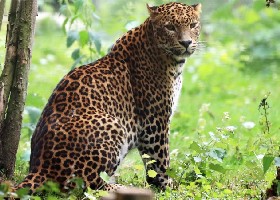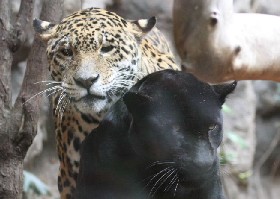Leopard Panthera pardus


The Leopard is the fourth and smallest member of the roaring "big cats" (after the Tiger, Lion and Jaguar) and is native to sub-Saharan Africa and parts of Asia.
The Leopards shown above and immediately below are the African subspecies (P. p. pardus) prevalent over much of sub-Saharan Africa.

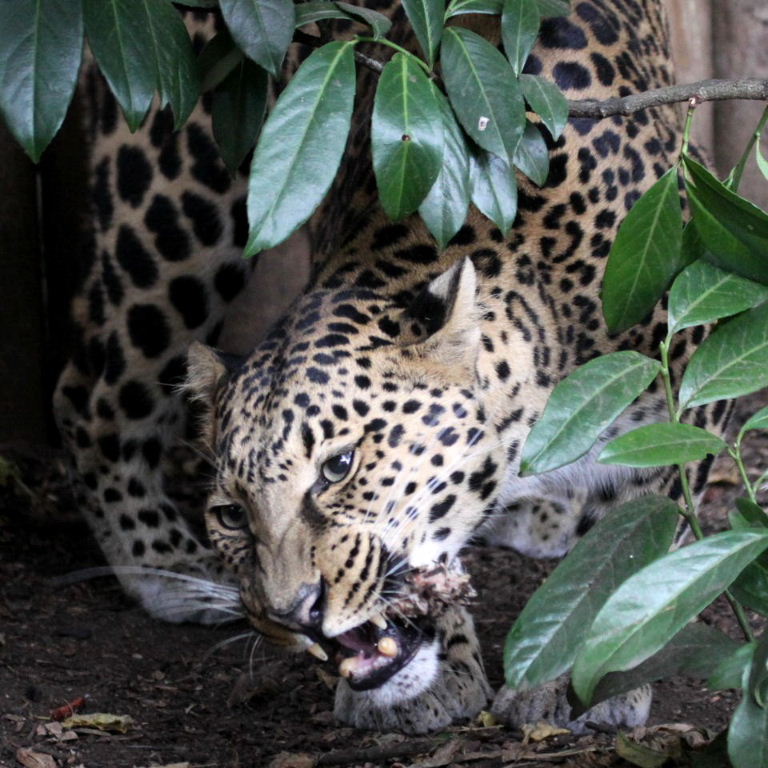

Usual colouring is a golden background with black spots (rosettes). Male and female are similar.
Appearance is similar to a jaguar but is slightly smaller and slimmer, has less white cheeks and a
slightly different pattern of rosettes (without pin spots within the black rosettes).
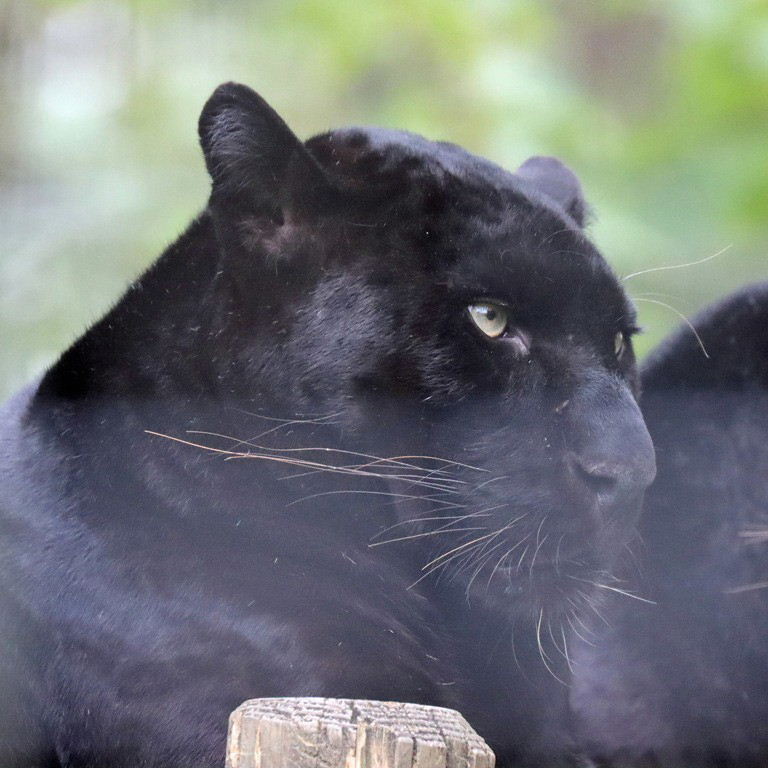
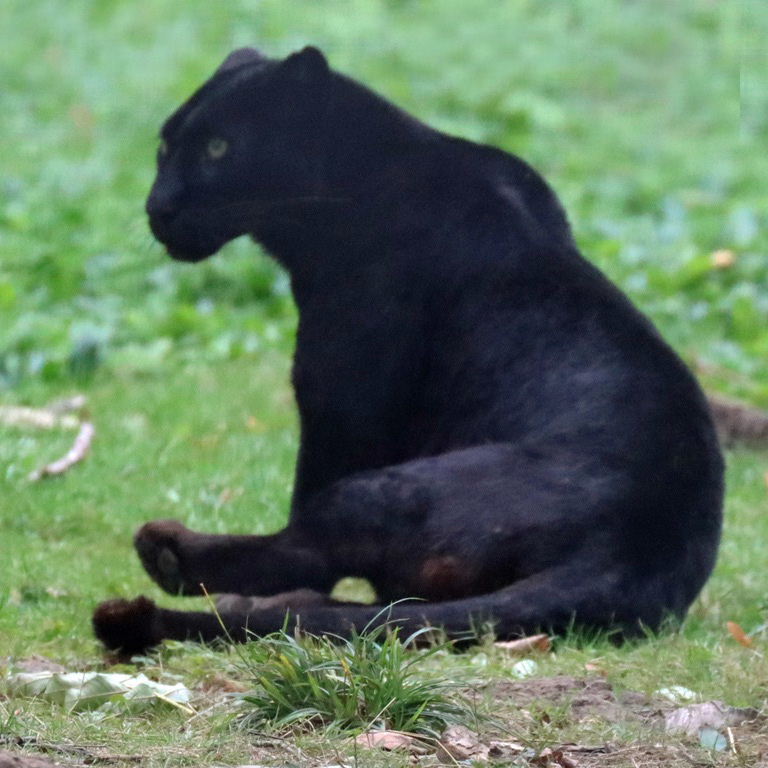
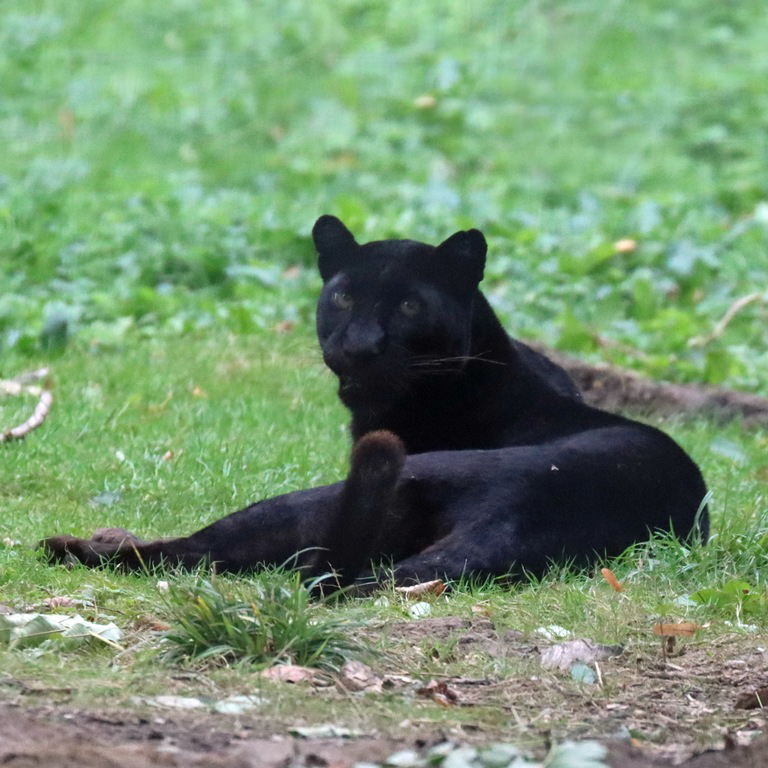
Melanistic (black) individuals occur occasionally and, like jaguars, are called Black Panthers.


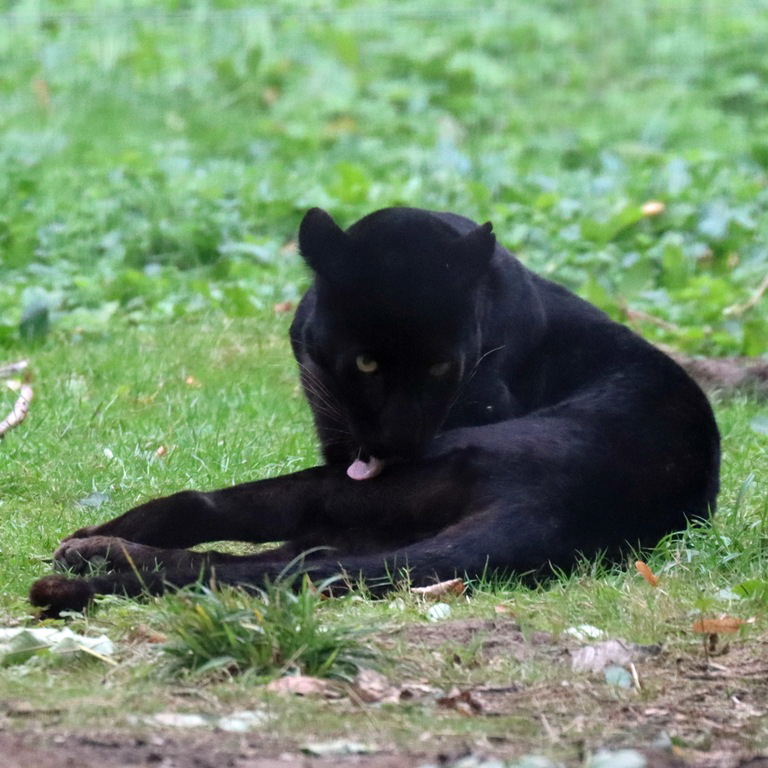
Like other cats, washing is a key activity.
Leopards are extremely adept at climbing trees and will do so to escape from lions and to store carcases of prey as well as to sleep.



The Leopard above is the Amur subspecies, Panthera pardus orientalis,
native to the southern part of the Russian Far East and to north-east China (and possibly the Korean peninsula).



The Amur is the only Leopard subspecies to live in a cold winter climate - others living on the plains of Africa and some in the Middle East and South Asia.
This results in a thicker coat but surprisingly it is generally a little smaller than its warm-climate relatives.
It has a slightly more ginger summer coat and paler winter coat than its African cousins.

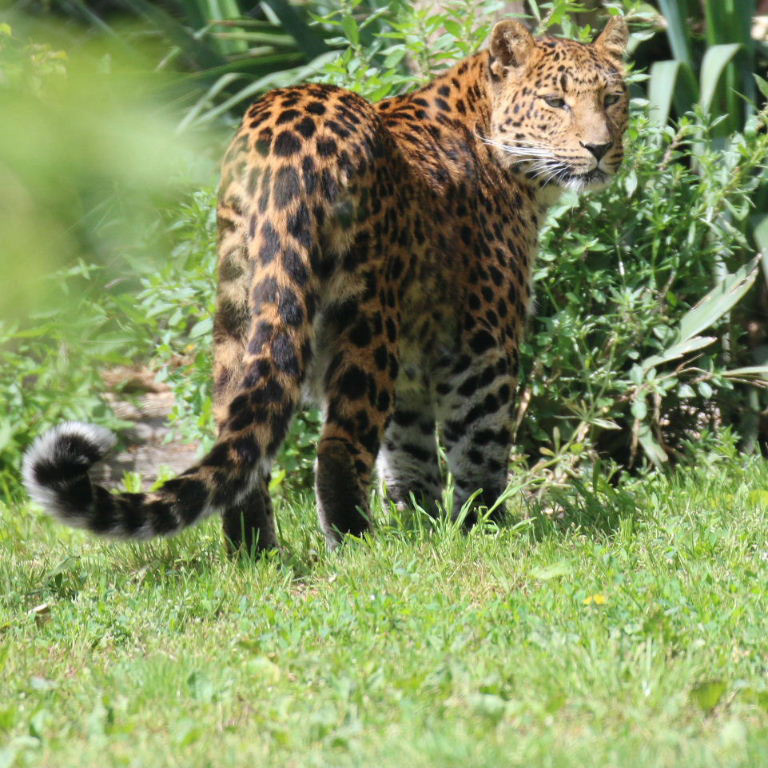

The Leopard in the first 2 pictures above is the North Chinese subspecies, Panthera pardus japonensis,
native to forests and mountains of northern China (despite the scientific name, not to Japan). It has a more orange coat and closer spots.
It is extremely rare and continues to be endangered by poaching for its fur and by habitat loss (mainly deforestation).

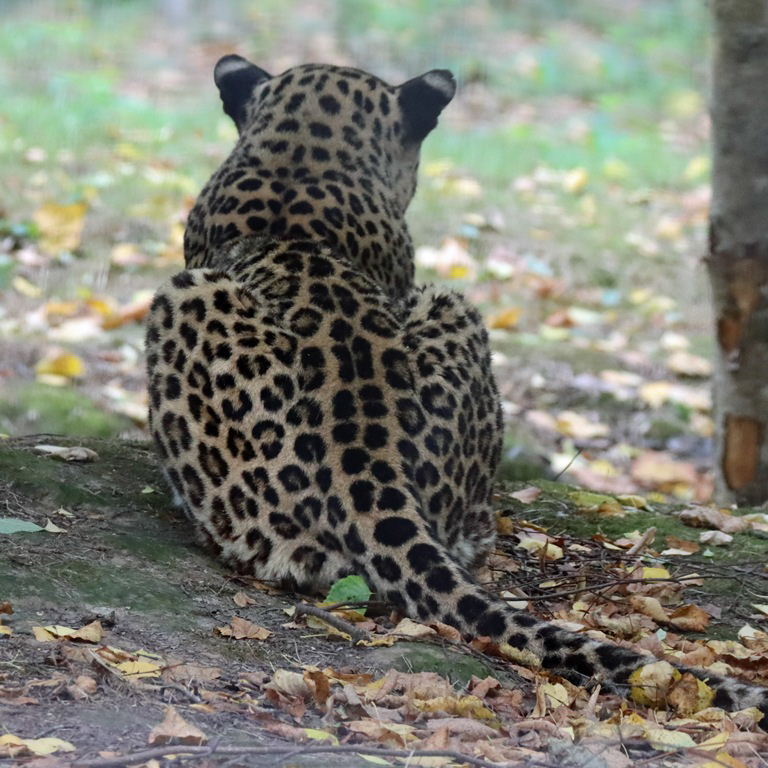
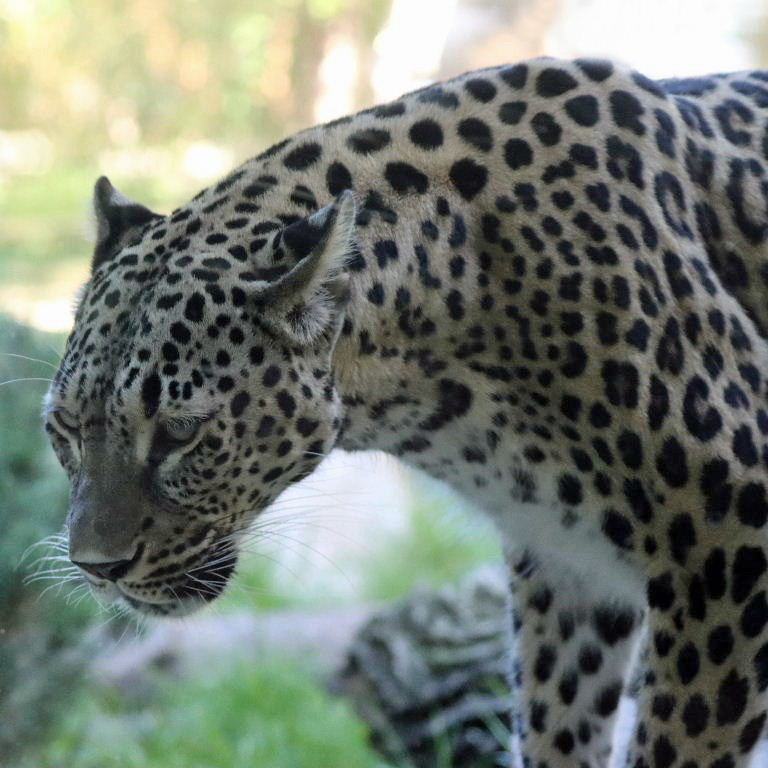
Immediately above is the Persian Leopard, P. p. saxicolor/tulliana,
native to the Caucasus, Eastern Turkey, Iran and neighbouring parts of Central Asia. Its sandy coat colour can be pale or dark.
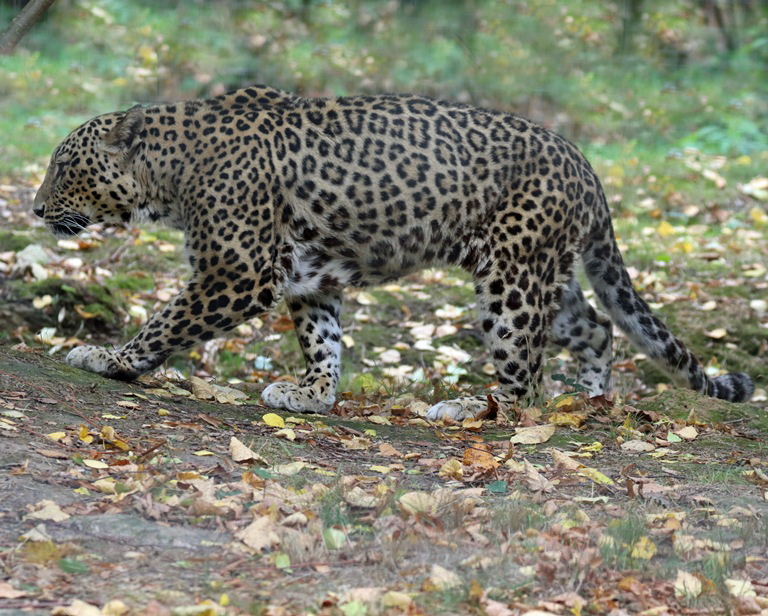
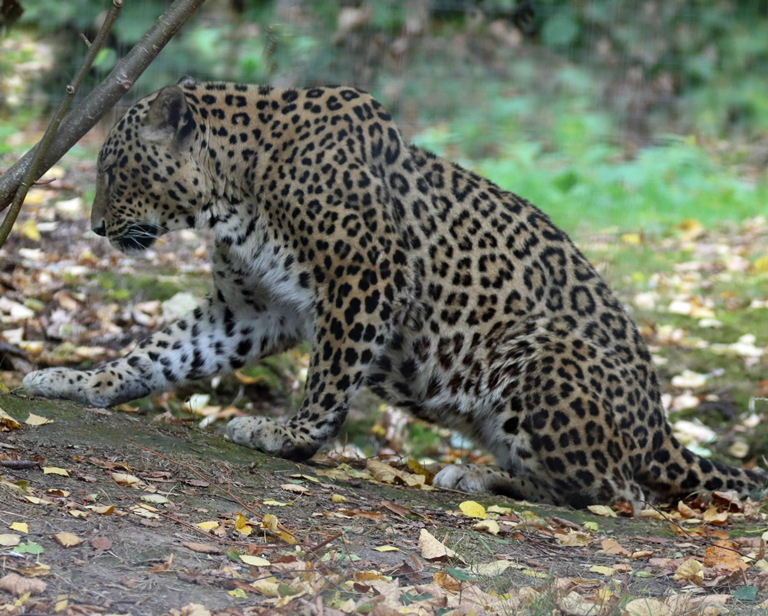
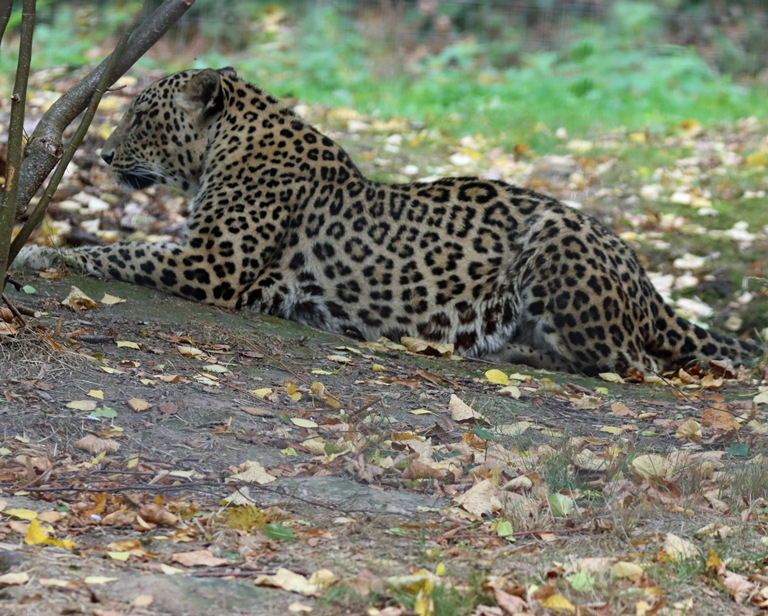
The Persian Leopard is also highly endangered.


